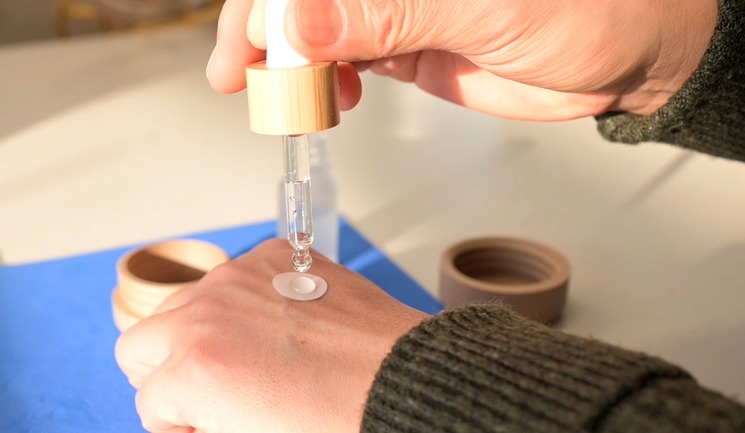Researchers from the University of East Anglia (UEA) have unveiled a potential technological breakthrough which could allow water- or oil-based skincare products to become rehydratable, increasing sustainability.
DRIES technology sees 98% of the water removed from skincare products so they become dehydrated into paper-like discs which are then rehydrated with water by the user, restoring them to their original consistency. The UEA researchers say this has the potential to dramatically reduce both the carbon footprint and packaging wastage of the beauty and skincare industry.
The research began in 2018, with the initial intention being to use the technology to optimise drug delivery, but the researchers soon realised it could be diversified into topical products like skin creams.
Researcher Professor Sheng Qi explains, “During trials, we noticed the material forming a sheet that looked like a beauty mask, so that’s where the idea came from. We heard that the personal care industry was interested in sustainable developments, so that’s why we thought now might be the time to move forward with the technology.”
The paper-like consistency is achieved by jetting the liquid product in a very quick-drying, heat-free stream, forming tiny fibres which layer to create a paper sheet. As the resulting sheets are very light, Professor Qi explains that distributing products in this form could reduce shipping costs, and accelerate companies towards net-zero goals.
She says, “It’s definitely possible to mass produce items using this process as industrial-scale manufacturing machines already exist. It is yet to be seen how this could be made cost-effective for companies, but this could be balanced by the environmental benefits.”
She also explains that the lack of heating involved in the production process could make this method particularly useful for products high in active ingredients frequently seen in cosmeceuticals, because it does not break them down to the same degree.
Professor Qi shares that the team has signed NDAs with a number of companies, allowing them to discuss how this technology could enhance their businesses, as well as how it could be applied to optimise clinical wound healing.

